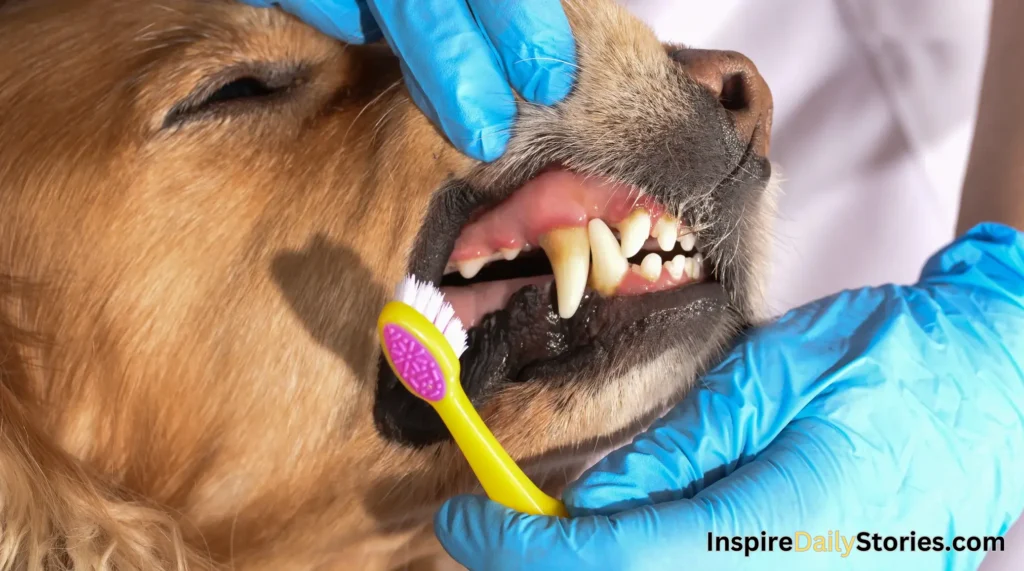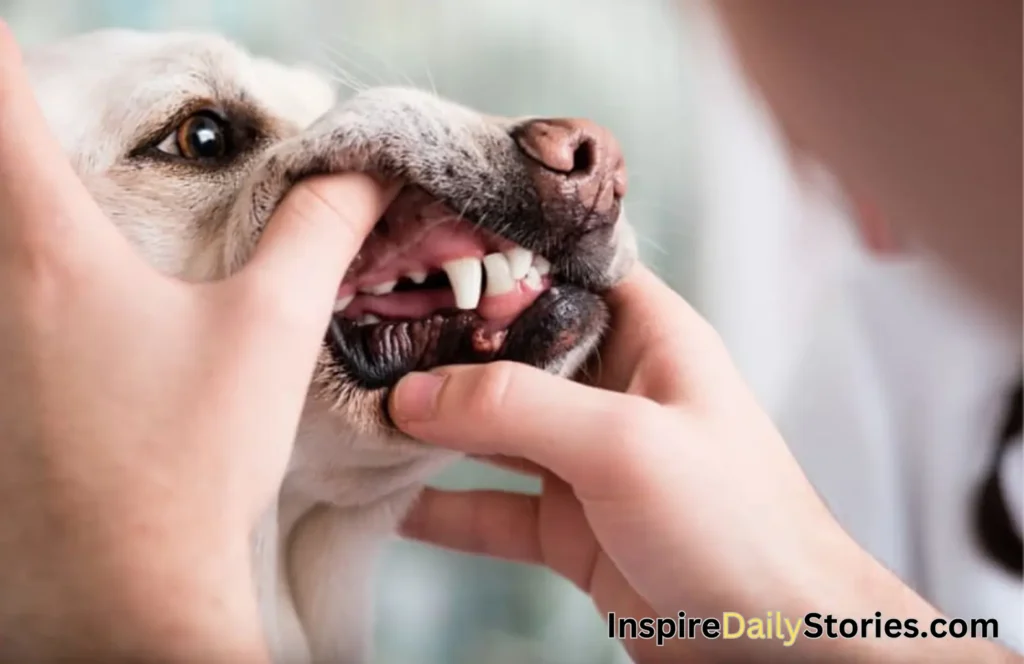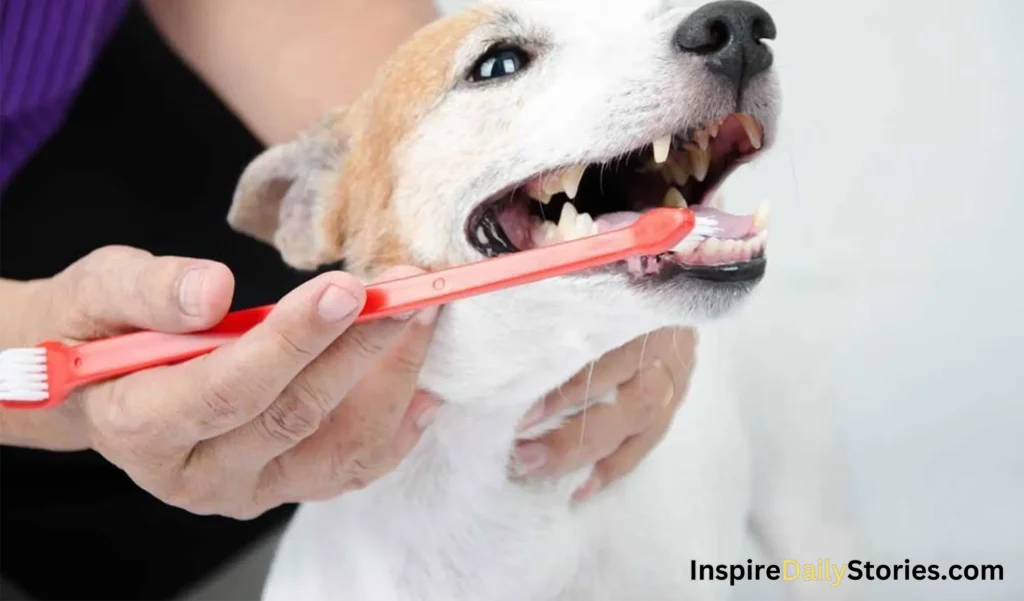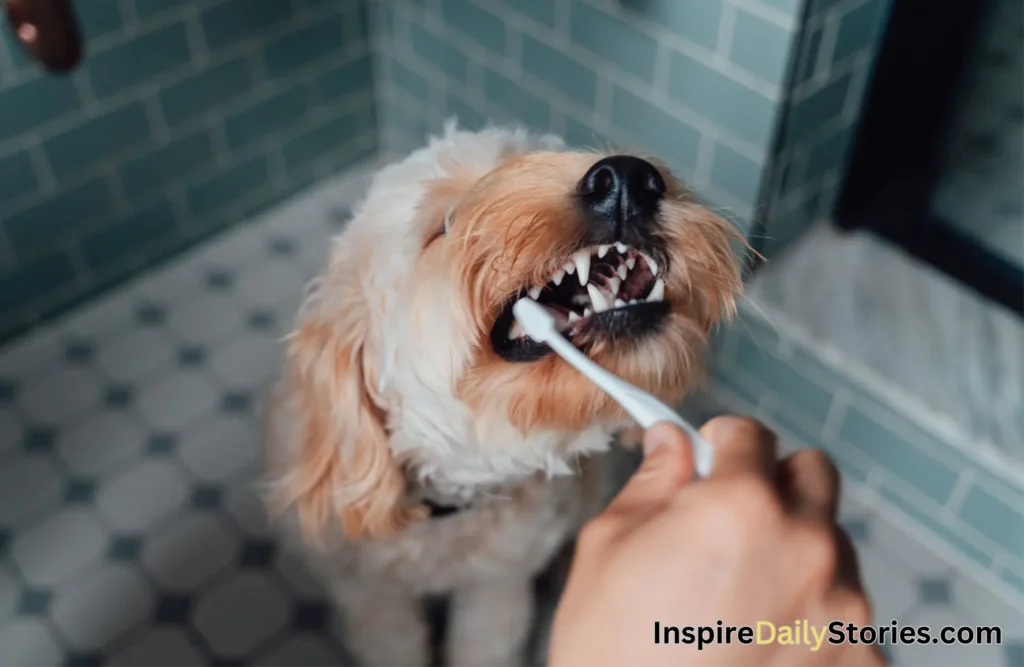How Can You Keep Your Pet’s Teeth Healthy?

Introduction
Having healthy teeth is vital for your pet’s well-being. Just like humans, pets can suffer from dental issues too. This article aims to provide simple tips to help you maintain your pet’s dental health.
A. Importance of dental health in pets
Dental health is crucial for pets because it affects their overall health. When pets have dental problems, it can lead to pain, difficulty eating, and even serious health issues. Taking care of your pet’s teeth can help them live a happy and healthy life.
B. Overview of common dental issues in pets
Pets can experience various dental problems, such as plaque buildup, tartar accumulation, gum disease, and tooth decay. These issues can cause discomfort and pain for your pet, affecting their ability to eat and enjoy life.
C. Purpose of the article: Providing tips for maintaining pet dental health
This article aims to provide you with simple and practical tips to keep your pet’s teeth healthy. By following these tips, you can prevent dental problems and ensure your pet’s well-being. Let’s explore some easy ways to care for your furry friend’s teeth!

Understanding Pet Dental Health
A. Anatomy of a pet’s mouth
To keep your pet’s teeth healthy, it’s essential to understand their mouth’s structure. Pets, like dogs and cats, have teeth, gums, and a tongue, just like humans. However, their teeth may vary in shape and number depending on the species.
B. Common dental problems in pets
Periodontal disease
Periodontal disease is one of the most common dental issues in pets. It occurs when bacteria build up on the teeth, leading to inflammation of the gums and surrounding tissues. If left untreated, it can cause pain, and tooth loss, and even affect vital organs like the heart and kidneys.
Tartar buildup
Tartar is a hard, yellowish deposit that forms on the teeth due to plaque buildup. It can irritate the gums and lead to gum disease if not removed regularly. Tartar buildup can also make it harder for pets to eat comfortably and can contribute to bad breath.
Gingivitis
Gingivitis occurs when bacteria in plaque inflame the gums. It can make the gums red, swollen, and tender. If left untreated, gingivitis can progress to more severe gum disease and lead to tooth loss.
Tooth decay
Tooth decay occurs when bacteria in the mouth produce acids that damage the tooth enamel. It can cause pain, infection, and even abscesses if not treated promptly. Regular dental care can help prevent tooth decay and keep your pet’s teeth strong and healthy.

Signs of Dental Issues in Pets
A. Behavioral changes indicating dental problems
Pets may show changes in behavior if they have dental issues. They might avoid chewing on toys or food, drool excessively, or paw at their mouth. These behaviors could signal pain or discomfort in their teeth or gums.
B. Physical signs of dental issues
Physical signs of dental problems in pets include bad breath, swollen or bleeding gums, yellow or brown tartar buildup on the teeth, and loose or missing teeth. Checking your pet’s mouth regularly can help you spot these signs early and take action to address them.
C. Importance of regular dental check-ups
Regular dental check-ups are crucial for maintaining your pet’s oral health. A vet can check your pet’s teeth and gums, spot dental problems early, and suggest proper treatment. They may also perform professional cleanings to remove tartar and plaque buildup, keeping your pet’s teeth and gums healthy. Regular check-ups can prevent dental problems from worsening and ensure your pet stays happy and healthy.

Tips for Maintaining Your Pet’s Dental Health
A. Proper diet and nutrition for dental health
Feeding your pet a balanced diet that includes dental-friendly foods can help keep their teeth healthy. Look for pet foods that are specially formulated to support dental health and avoid giving them too many sugary treats, which can contribute to tooth decay.
B. Regular brushing techniques and tools
Brushing your pet’s teeth regularly with a pet-friendly toothbrush and toothpaste is one of the best ways to prevent dental problems. Start slowly and gently introduce brushing to your pet’s routine, aiming for at least a few times a week. Brushing removes plaque and stops tartar from forming.
C. Importance of chew toys and dental treats
Chew toys and dental treats can help keep your pet’s teeth clean by scraping away plaque and tartar as they chew. Look for toys and treats that are specifically designed to promote dental health and ensure they are the appropriate size and texture for your pet.
D. Professional dental cleanings and examinations
Regular dental cleanings and examinations by a veterinarian are essential for maintaining your pet’s dental health. Your vet can remove tartar buildup, identify any dental issues early on, and provide treatment as needed. Aim for annual dental check-ups to keep your pet’s teeth in top condition.
E. Alternative dental care options (e.g., dental rinses, water additives)
In addition to brushing and chewing toys, there are alternative dental care options available for pets, such as dental rinses and water additives. These products can help reduce bacteria in your pet’s mouth and promote overall dental health. Ask your veterinarian for recommendations on which products are suitable for your pet.

Preventive Measures for Long-term Dental Health
A. Establishing a dental care routine from an early age
Start caring for your pet’s teeth as soon as you bring them home. Introduce them to brushing and dental care habits gradually to make it a natural part of their routine. This helps prevent dental problems later in life.
B. Monitoring your pet’s dental health regularly
Keep an eye on your pet’s teeth and gums by checking them regularly. Look for signs of dental issues like bad breath, swollen gums, or tartar buildup. Regular monitoring helps catch problems early and prevent them from getting worse.
C. Addressing dental issues promptly to prevent complications
If you notice any signs of dental problems, take your pet to the vet right away. Dental issues can worsen quickly and lead to serious complications if left untreated. Prompt treatment can help prevent pain and discomfort for your pet.
D. Importance of professional guidance from veterinarians
Your veterinarian is your best resource for keeping your pet’s teeth healthy. They can provide guidance on dental care routines, recommend products, and perform professional cleanings and treatments as needed. Regular check-ups with your vet are essential for maintaining your pet’s dental health in the long term.
Conclusion
A. Recap of key points for maintaining pet dental health
Keeping your pet’s teeth healthy involves establishing a routine of brushing, monitoring their dental health, providing dental-friendly foods and toys, and seeking professional veterinary care when needed.
B. Encouragement for pet owners to prioritize dental care
As pet owners, it’s essential to prioritize your pet’s dental health just like you would your own. Regular dental care can prevent pain and discomfort for your pet and help them live a happier, healthier life.
C. Emphasis on the role of proactive dental care in ensuring overall pet well-being
Proactive dental care is crucial for your pet’s overall well-being. By taking preventive measures and addressing dental issues promptly, you can ensure that your pet stays healthy and enjoys a higher quality of life. Keep in mind, that a happy pet often has a healthy smile!
People also ask
How can pet owners ensure good dental health?
Establish a routine for brushing, monitor dental health, and provide dental-friendly food and toys.
What is healthy for dogs’ teeth?
Healthy foods, dental treats, and appropriate chew toys promote dental health for dogs.
How can I make my cat’s teeth healthy?
Provide dental treats, and toys, and consider brushing your cat’s teeth regularly.
How can we prevent dental disease in animals?
Regular dental check-ups, proper diet, and dental care routines help prevent dental disease.
How can I improve my dog’s dental health?
Brush your dog’s teeth regularly, provide dental treats, and schedule regular vet check-ups.
How do you take care of a dog with dental issues?
Provide soft food if necessary, brush gently, and seek veterinary care promptly for dental issues.



